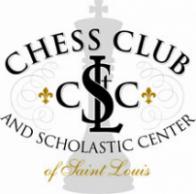
This dissertation, completed in 2013, evaluated the effects of an in-school chess intervention on second grade students in England. Treatment group students (n=201) participated in a total of 30 hours of chess instruction. Schools in which chess was taught to students at this age were matched, based on student characteristics, with schools that did not offer chess to their students or taught chess in a later grade. Students in both groups completed an author-designed math quiz composed of 19 math and reasoning items. The quiz specifically sought to measure student ability in the areas of numeracy spatial awareness, logical deduction, and problem solving. The results of independent t-tests comparing the mean performance of students in treatment schools to that of students in control schools revealed significant differences on each of the four areas of mathematical ability measured by the quiz. The overall effect size across these areas was 0.515 standard deviation units. The results were statistically significant. This study was eligible for inclusion in the systematic literature review and categorized as a Tier I study. The randomization of schools into the treatment and control groups provides confidence that the higher levels of mathematics achievement observed among treatment group students is attributable to the chess intervention.


